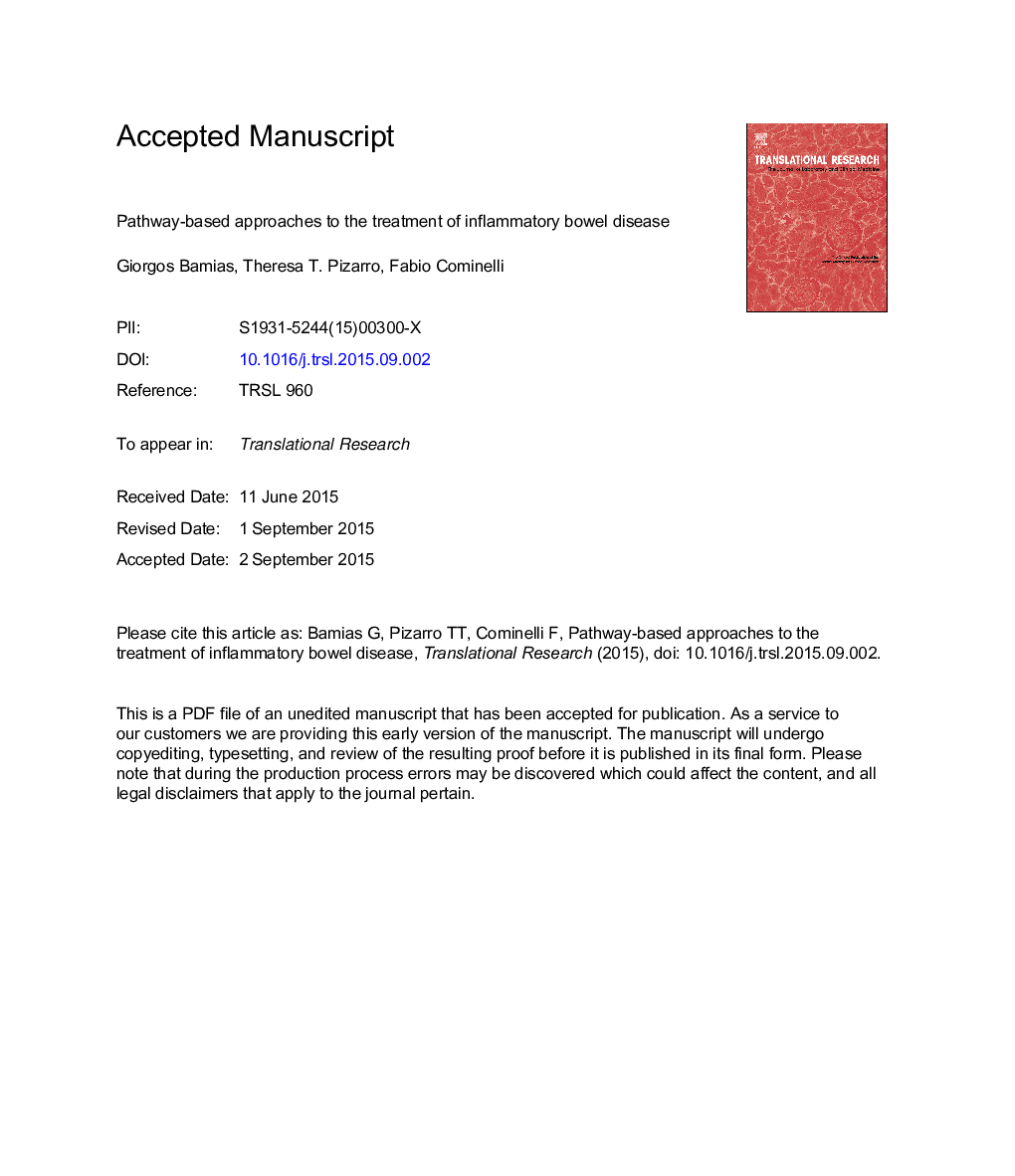| Article ID | Journal | Published Year | Pages | File Type |
|---|---|---|---|---|
| 6155935 | Translational Research | 2016 | 36 Pages |
Abstract
Crohn's disease and ulcerative colitis, collectively termed inflammatory bowel disease (IBD), are immunologic disorders that represent the prototypes of chronic intestinal inflammation. Their pathogenesis involves the dysregulated interaction between the intestinal microbiota and the gut-associated mucosal immune system that takes place when genetically predisposed individuals are exposed to detrimental environmental triggers. In recent years, the therapeutic dogma in IBD has shifted away from the administration of nonspecific immunosuppressives toward a pathway-based approach. In this review, we present an outlook of IBD treatment based on this new conceptual approach. Firstly, we will provide an overview of the major aspects of IBD pathogenesis with emphasis on specific pathway-based defects. Secondly, we will examine in detail the development of novel therapeutic approaches that can be used to target genetics, dysbiosis, the epithelial barrier, proinflammatory cytokines, and leukocyte trafficking. Most of these strategies are still in the developmental phase, but promising approaches include fecal microbiota transplantation as a means to correct IBD-related dysbiosis; administration of modified phosphatidylcholine to enhance the function of the intestinal mucous and tighten the defective epithelial barrier; the reduction of over-reactive proinflammatory pathways through the blockade of novel, nontumor necrosis factor inflammatory mediators via monoclonal antibodies against the common p40 chain of interleukin (IL-12) and IL-23, Janus kinase inhibitors, or antisense oligonucleotides against inhibitors of the immunosuppressive cytokine transforming growth factor-β1; and finally, inhibition of leukocyte trafficking to the gut via neutralization of the gut-specific α4β7 integrin. Availability of such diverse treatment modalities with specific pathway-based targets will increase the therapeutic options for patients with IBD.
Related Topics
Health Sciences
Medicine and Dentistry
Medicine and Dentistry (General)
Authors
Giorgos Bamias, Theresa T. Pizarro, Fabio Cominelli,
